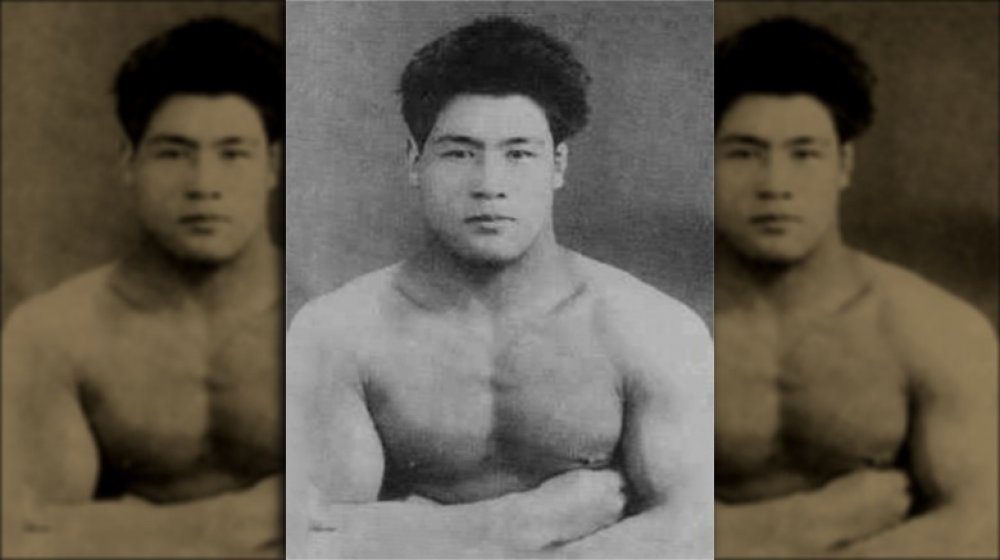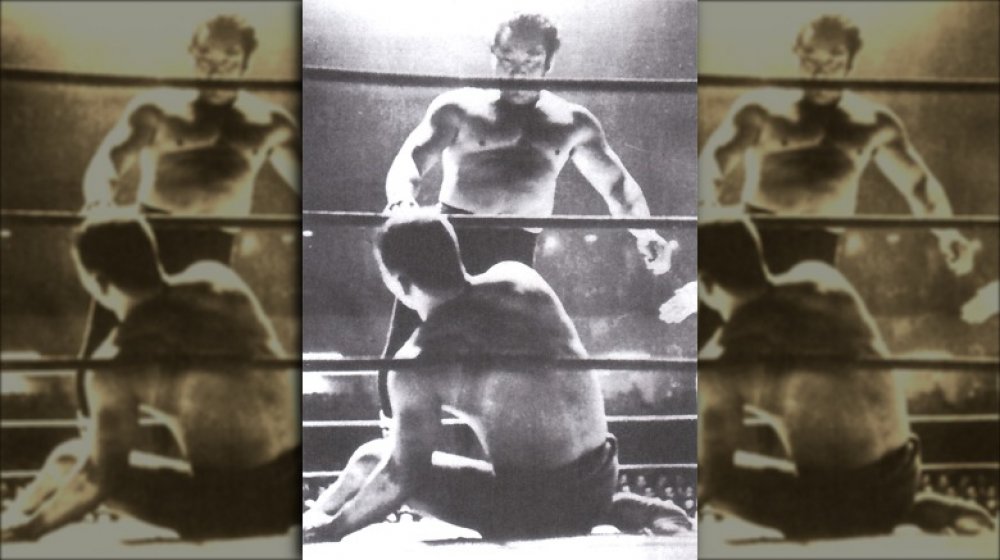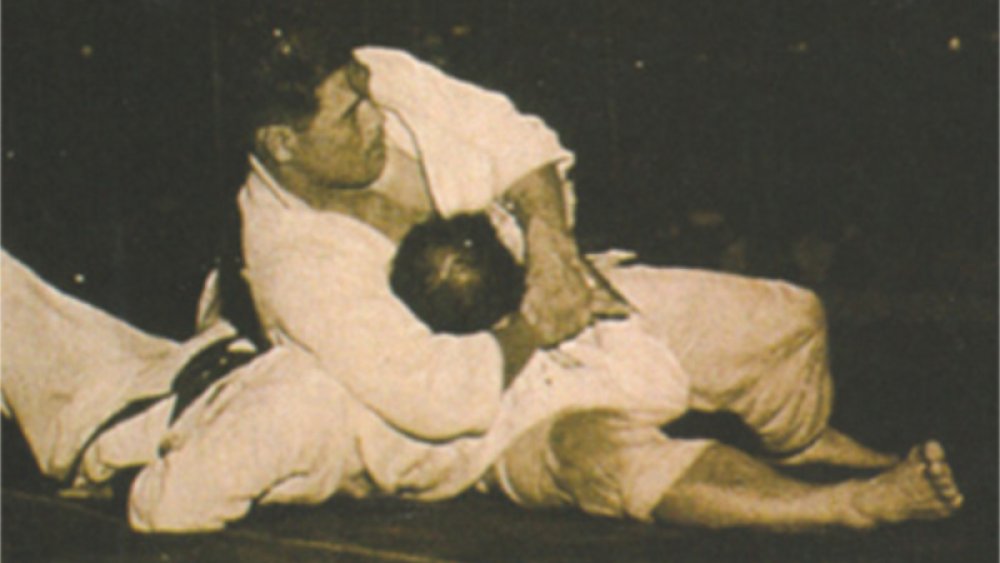The Untold Truth Of Martial Arts Legend Masahiko Kimura
Some legendary fighters spring up from unlikely places, their prodigious acumen for fisticuffs emerging as if from nowhere. This is not Masahiko Kimura's story. To all appearances, Kimura was born equal parts immovable object and unstoppable force. Masahiko Kimura was born in the late summer of 2017 in Kumamoto, Japan. At age 9, he began training in judo. By 15, he was a fourth dan blackbelt. Early pictures of Kimura leave little doubt about his pugilistic propensities — with his rectangular muscle-truck of a body, thick neck, and cuboid yet oddly handsome head. Every inch loudly broadcast that performing a Three Stooges-style eye poke on this individual would be reckless — and quite possibly the central explanatory theme of one's obituary.
Masahiko Kimura's glossy catalog of muscles and skill made him scary. But his attitude made him terrifying. Here's Kimura's description of an encounter he had as a young man with a more experienced instructor armed with a wooden weapon shaped like a military rifle and bayonet:
"The instructor said 'Thrust, thrust. Come on, what's the matter?' I knew I would lose as soon as I thrust the gun at him. So, I [...] I [feinted] a thrust, and then threw the wooden gun at his face [...]. At the moment he deflected the wooden gun, I tackled his knees. He fell to the ground. I mounted his chest, removed his face guard [...], and delivered a finishing blow to his face." Sounds kind of ruthless, right? Hold that thought.
The fight that defined Kimura's career
Tomes could be (and have been) written about Kimura's long and successful career. Drawing from Kimura's biography on Judo Info, the heavily condensed version is that by 20 years old, Kimura had already written himself into the history books as an All Japan Championship winner, earning three consecutive victories and claiming the Championship Flag — a feat still achieve by no one else. After such prodigious early success, Kimura thought it'd be kind of fun to keep on winning, and remained undefeated right up to his official retirement date 13 years later.
But Kimura's defining fight — the moment martial arts historians still talk about — happened right at the end of his career in 1949. Kimura was invited to tour Brazil, a country almost as Jiu-Jitsu and Judo-crazed as Japan at the time. He was challenged there by Hélio Gracie, a local champion who'd later become one of the founding fathers of Brazilian Jiu-Jitsu. Kimura, being Kimura, accepted without hesitation. Right from the get-go, the fight looked set to be nasty. As Kimura later wrote:
"When I entered the stadium, I found a coffin. I asked what it was. I was told, "This is for Kimura. Helio brought this in." [...] As I approached the ring, raw eggs were thrown at me."
Oh snap!
Gracie was a skilled fighter, but Kimura had the edge, throwing Gracie around the ring repeatedly. But in part because the rules were tilted in Gracie's favor and in part because their fighting mats were softer than Japanese regulation, Kimura couldn't land a finishing move. He applied suffocating grappling techniques and every hold in his arsenal, but Gracie just refused to surrender. In the second round, Kimura shifted strategy and took the fight to the ground. Finally, he caught hold of Gracie's arm. Here's where history was made, and it's worth letting Kimura do the straight-talking here:
"I grabbed his left wrist with my right hand and twisted up his arm. [...] I thought he would surrender immediately. But Helio would not tap the mat. [...] The stadium became quiet. The bone of his arm was coming close to the breaking point. Finally, the sound of bone breaking echoed throughout the stadium. Helio still did not surrender. [...] I twisted the left arm again. Another bone was broken. Helio still did not tap. When I tried to twist the arm once more, a white towel was thrown in."
In a game of arm-bendy chicken, Kimura was always going to win. He died in 1993 at age 75, but it's all too easy to imagine Kimura still out there somewhere, twisting the night away in his eternal quest for ultimate victory.


